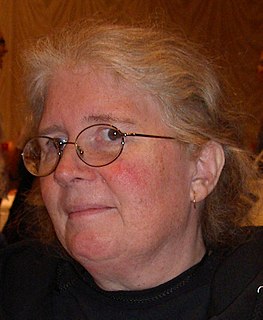A Quote by Kage Baker
Back when the concept of organ transplants qualified as science fiction, novelist Maurice Renard wrote a thriller called 'Les Mains d'Orlac.' Call it a bastard offspring of 'Frankenstein;' its plot revolved around the old theme of Science Giving Us Stuff We Shouldn't Have - in this particular case, restoring severed body parts.
Related Quotes
I think that prog rock is the science fiction of music. Science fiction speculates on what the future might be and look like and how we'll get there, and yet there's always a central theme of humanity, or there should be. Progressive rock has the same concept of exploration into the parts of the music world that hasn't been explored.
From space travel to organ transplants, one of the most important influences shaping the modern world is science. Amazingly, people who lived during the Civil War had more in common with Abraham than with us. If Christians are going to speak to that world and interact with it responsibly, they must interact with science.
Science fiction is fantasy about issues of science. Science fiction is a subset of fantasy. Fantasy predated it by several millennia. The '30s to the '50s were the golden age of science fiction - this was because, to a large degree, it was at this point that technology and science had exposed its potential without revealing the limitations.
I can think of very few science books I've read that I've called useful. What they've been is wonderful. They've actually made me feel that the world around me is a much fuller, much more wonderful, much more awesome place than I ever realized it was. That has been, for me, the wonder of science. That's why science fiction retains its compelling fascination for people. That's why the move of science fiction into biology is so intriguing. I think that science has got a wonderful story to tell.
The main difficulty is finding an idea that really excites me. We live in an age when miracles are no longer miracles, and science and the future are losing their sense of mystery. For science fiction, or at least the type of science fiction I write, this development is almost fatal, but I'm still giving it all I've got.





































